“A Piece of My Mind”
March 2015 Newsletter from Donald Shoemaker
Advancing Christian Faith and Values, Defending Religious Liberty for All, Supporting Civility and the Common Good through Preaching, Teaching, Writing, Activism and Reasoned Conversations
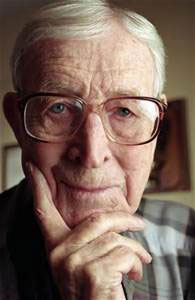
“The moment your past becomes more exciting than your future, is the day you start to die.”
– Coach John Wooden
“Forgetting what is behind and straining toward what is ahead, I press on toward the goal to win the prize for which God has called me heavenward in Christ Jesus.”
– The Apostle Paul, looking forward in his own Christian experience and ministry (Philippians 3:13-14 NIV)
Religious Liberty Vigilance –

“Congress shall make no law respecting an establishment of religion, or prohibiting the free exercise thereof, or abridging the freedom of speech, or of the press; or the right of the people peaceably to assemble, and to petition the Government for a redress of grievances.”
– 1st Amendment
“No provision in our constitution ought to be dearer to man,
than that which protects the rights of conscience against the enterprizes of the civil authority.”
– Thomas Jefferson
Atlanta’s Fire Chief Dismissed over his Religious Views on Sexual Behavior
Fire Chief Kelvin Cochran
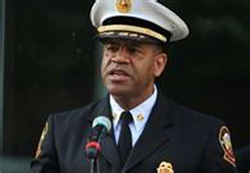
I take no pleasure in writing these words. And my intent is to write with the greatest of care and sensitivity. But what I say needs to be said—and said and said again. Once again we see a sign that our society is moving from being a free society to a “correct” society.
(Former) Fire Chief Kelvin Cochran serves as a deacon in his Baptist church. He self-published a book titled “Who Told You that You Are Naked?” (a take from God’s question to Adam in the account found in Genesis 3 about Adam and Eve eating the “forbidden fruit”). The book was based on lessons he had given to men’s groups at his church. In the book, Cochran expressed traditional biblical understandings of sexuality and marriage and spoke against other understandings, including same-sex unions.
I have not read the book. Nor can I speak to the charges that:
- Cochran did not receive approval to publish the book from the city’s ethics officer (he said he received verbal clearance to publish);
- Cochran spoke to the media on the issue during his 30-day suspension, in violation of an order not to do so (he said he didn’t);
- Cochran distributed copies of his book to some members of the fire department (he said he gave copies to a group of Christians).
For these, Mayor Kasim Reed fired Chief Cochran in January. These are all “the mayor said/the chief said” matters. The fired chief sees religious discrimination; the mayor says the chief’s judgment, not his religion, led to his dismissal. This much I will say:
- Whatever may be true about the mayor’s opinion, I have no doubt the chief’s opinion is correct. He has been punished for expressing his religious views.
- It is odious and unacceptable that any government employee who writes on a religious topic should have to consult with and get prior approval from a government official. * This “prior restraint” censorship violates the deeply-held principle of separation of church and state. The Supreme Court once said, “The law knows no heresy,” and courts have said again and again that the state has neither the right nor the qualifications to judge religious teachings.
- Even if the mayor was correct and the chief was in error in any of the above charges, this calls for reprimand, not removal.
- The key issue is not what the chief’s religious views are on hotly debated sexual topics. It is whether or not he can do his job. Only if the first prevents the second is there a basis for government action. And the burden of proof should rest on the state, not on the person with religious convictions. **
On this point, I find this statement by Americans United for Separation of Church and State absolutely ludicrous: “No one is saying Cochran doesn’t have a right to his beliefs, despicable though they are. But his beliefs called his ability to do his job into question. What if a local gay bar were on fire? Would Cochran do his best to make sure the fire department responded quickly? Given his obvious bias toward gays, it’s hard to say.”
No, it’s not “hard to say”!!! Put it this way. Suppose the chief strongly believed, as many people of religious conviction do, that married couples should be “one in faith” rather than divided over religion. Then suppose he said, “I will not hire any firefighter whose home has mixed religious beliefs in it,” and, “If their home catches on fire, they had better look for help elsewhere.”
Such dereliction of duty should get one fired. But public servants know that you never treat the public this way.
After the murders of newspaper workers in Paris, CBS news anchor Scott Pelley made this exceptional commentary at the end of a broadcast (Jan. 9):
- Someone asked us today if the French magazine acted irresponsibly, publishing cartoons of the Prophet Mohamed. “Couldn’t all of this been avoided if Charlie Hebdo had been more sensible?”
- …Why are freedom to publish and freedom to speak absolute? Because there is no democracy without journalism.
- …Silence is the end of freedom.
That’s right. Freedom of speech, freedom to publish, and freedom to believe as you choose and then to exercise those beliefs—all are foundational to our constitutional democracy. Without them, liberty is lost.
- * Obviously, a government employee who expresses a religious or controversial opinion is speaking for himself and not for the government entity where he works. This needs to be clearly understood and sometimes needs to be stated. A government agency may require advance approval of outside employment, but this must not extend to a judgment about the religious content of a written work or speech.
- ** If the accused demonstrates that his convictions arise from sincerely-held religious beliefs, the government should have the burden to demonstrate that these beliefs clearly prevent him from doing his job, that it has a compelling state interest in restricting his free exercise of religion and that there are no lesser means of discipline that would accomplish the state’s legitimate ends.
Don’s Upcoming Ministries
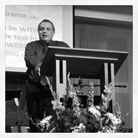
March 3 – Speak at the Long Beach Rescue Mission’s 7:00 p.m. Chapel Service
March 21 – Sing the National Anthem at the start of Seal Beach’s 5/10K Race (8:00 a.m.).
March 22 – Speak on the “forgiveness” petition of The Lord’s Prayer in Sunday Morning Worship Services at Grace Community Church of Seal Beach (8:00, 9:30, 11:00)
April 19 – Speak to the High School ministry at Grace Community Church on Acts 17:16-34, the Apostle Paul’s message in Athens on Mars Hill (9:30 a.m.)
Bible Insight – “The Ten Commandments”
(See Exodus 20:2-17 at the end of this newsletter)
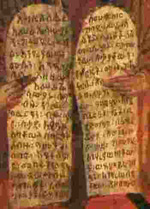
ABC news correspondent Ted Coppell once said, “What Moses brought down from Mt. Sinai were not the Ten Suggestions, they are Commandments. Are, not were. The sheer brilliance of the Ten Commandments is that they codify, in a handful of words, acceptable human behavior. Not just for then or now but for all time.”
The Ten Commandments are presented to us in Scripture this way:
-
They were given by God.
“And God spoke all these words…” (Exodus 20:1)
Like it or not, if you strip the presence of the “God who speaks” from the ethical values of the Ten Commandments, they lose their moral power. Ethics without God is just one man’s (or philosophy’s) opinion against another’s.
-
They were given by God to his chosen people.
“Moses went up to God, and the Lord called to him from the mountain and said, ‘This is what you are to say to the house of Jacob and what you are to tell the people of Israel'” (Exodus 19:3)
While the whole human race benefits by obeying these commands, and while a society benefits when these commands are inculcated into its culture (respect for life, respect for parents, respect for property, etc.), as a “set of commands” they are an inseparable feature of God’s covenant relationship to his people. Thus, a secular society misses the point if it tries to post The Ten Commandments in public classrooms or on monuments as a moral code.
-
They were given by God to his chosen people whom he had saved by his grace.
“You yourselves have seen what I did to Egypt and how I carried you on eagles’ wings and brought you to myself” (Exodus 19:4).
The people were to obey these commands not so they gain salvation, but because they have already experienced salvation (deliverance from slavery). The Ten Commandments, properly understood, cannot be pitted against the forgiving grace of God and life under the grace of God.
-
They were “covenant expectations”.
“Now if you obey me fully and keep my covenant, then out of all nations you will be my treasured possession…a kingdom of priests and a holy nation” (Exodus 19:5-6; see 1 Peter 2:9).
Israelites were to obey the commandments not as a condition for entering a special relationship with God, but to continue in the blessings and benefits of that relationship. Departing from the commandments means hardship, loss, pain and bondage—no matter how good things once were when the commands were held high.
-
They are further explained in “case law” – how they should apply in specific situations.
(See especially Exodus 21-23)“A thief must certainly make restitution” (Exodus 22:3). Imagine how this principle would impact the cause of justice if it were widely applied!
“If a thief is caught breaking in and is struck so that he dies, the defender is not guilty of bloodshed. But if it happens after sunrise, he is guilty of bloodshed” (Exodus 22:2). Not all killing is murder—people may justifiably defend lives and property. But you cannot kill a thief in just any situation.
“Anyone who strikes a man and kills him shall surely be put to death. However, if he does not do it intentionally…he is to flee to a place I will designate. But if a man schemes and kills another man deliberately, take him away from my altar and put him to death” (Exodus 21:12-14). This shows many principles: (1) when a society executes a murderer, that act of killing is not itself an act of murder; (2) if a killing is unintentional, the person who caused the death is not treated as a murderer; (3) premeditated murder is the primary prohibition in the commandment “You shall not kill”.
Telling the truth? “Do not spread false reports… When you give testimony in a lawsuit, do not pervert justice by siding with the crowd, and do not show favoritism to a poor man in his lawsuit” (Exodus 23:1-2). “Do not bear false witness” is obeyed through nurturing a strong passion for truth.
Respecting property rights? Obedience to the “do not steal” commandment has its positive side: you must do what you can to restore property that the owner has lost—even if you don’t particularly like the guy (“your enemy”)! See Exodus 23:4.
-
Human nature tries to justify breaking the commandments through moral chicanery, tricks, traditions, qualifications and justifications.
“God said, ‘Honor your father and mother’… But you say that if anyone declares that what might have been used to help their father or mother is ‘devoted to God,’ they are not to ‘honor their father or mother’ with it. Thus you nullify the word of God for the sake of your tradition” (Jesus’ teaching on observing Law over tradition in Matthew 15:4-6).
-
In Bible times, prophets and teachers of the Law (supremely Jesus) applied The Ten Commandments to new situations and called for them to be kept sincerely and correctly from the heart. Every generation of those who claim to know God has to apply them to new situations without departing from their original intent.
The Ten Commandments must be applied afresh as people find new and creative ways to break them. In fact, in our rapidly changing world, they need to be renewed each decade, to see if we are keeping them as God intended.
By all means, learn The Ten Commandments!
A Tribute to Pro-Life Activist
Dr. John Willke—
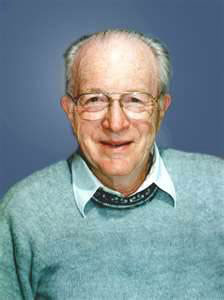
Obstetrician John Willke and his wife, Barbara, became the voices of the pro-life movement when they wrote the Handbook on Abortion. First published in 1971 and with 1.5 million sold, it became “The Text” for pro-life activism (I won’t say, “The Bible of the Pro-life Movement” because the Bible is the Bible of the Pro-life Movement).
In 1972, when Protestant Evangelical pro-life convictions were nominal to non-existent, I gave a sermon on abortion that proved to be seminal and grew into a booklet called Abortion, the Bible and the Christian. Dr. Willke often promoted this booklet, and it was published by the tens of thousands.
He was a selfless, caring, wise, focused leader. I worked with him personally in 1980, the year he became President of the National Right to Life Committee and I was General Chairman of its national convention at the Anaheim Convention Center. I observed him as a devout Roman Catholic Christian who refused to compartmentalize his faith inside church walls (in its earliest years, the Right to Life movement was almost all devotedly Catholic).
John died February 20 at the age of 89. Ohio Attorney General Mike DeWine on February 21 praised Willke as a worldwide leader in the right to life movement who brought great passion to the mission to protect the unborn.
Appendix – The Ten Commandments
Highly recommended: Listen to the free 11-part study (5 minutes each) of The Ten Commandments by Dennis Prager.
Connect to: www.prageruniversity.com
Exodus 20:2-17 © New International Version
2 “I am the Lord your God, who brought you out of Egypt, out of the land of slavery.
3 “You shall have no other gods before me.
4 “You shall not make for yourself an image in the form of anything in heaven above or on the earth beneath or in the waters below. 5 You shall not bow down to them or worship them; for I, the Lord your God, am a jealous God, punishing the children for the sin of the parents to the third and fourth generation of those who hate me, 6 but showing love to a thousand generations of those who love me and keep my commandments.
7 “You shall not misuse the name of the Lord your God, for the Lord will not hold anyone guiltless who misuses his name.
8 “Remember the Sabbath day by keeping it holy. 9 Six days you shall labor and do all your work, 10 but the seventh day is a sabbath to the Lord your God. On it you shall not do any work, neither you, nor your son or daughter, nor your male or female servant, nor your animals, nor any foreigner residing in your towns. 11 For in six days the Lord made the heavens and the earth, the sea, and all that is in them, but he rested on the seventh day. Therefore the Lord blessed the Sabbath day and made it holy.
12 “Honor your father and your mother, so that you may live long in the land the Lord your God is giving you.
13 “You shall not murder.
14 “You shall not commit adultery.
15 “You shall not steal.
16 “You shall not give false testimony against your neighbor.
17 “You shall not covet your neighbor’s house. You shall not covet your neighbor’s wife, or his male or female servant, his ox or donkey, or anything that belongs to your neighbor.”



